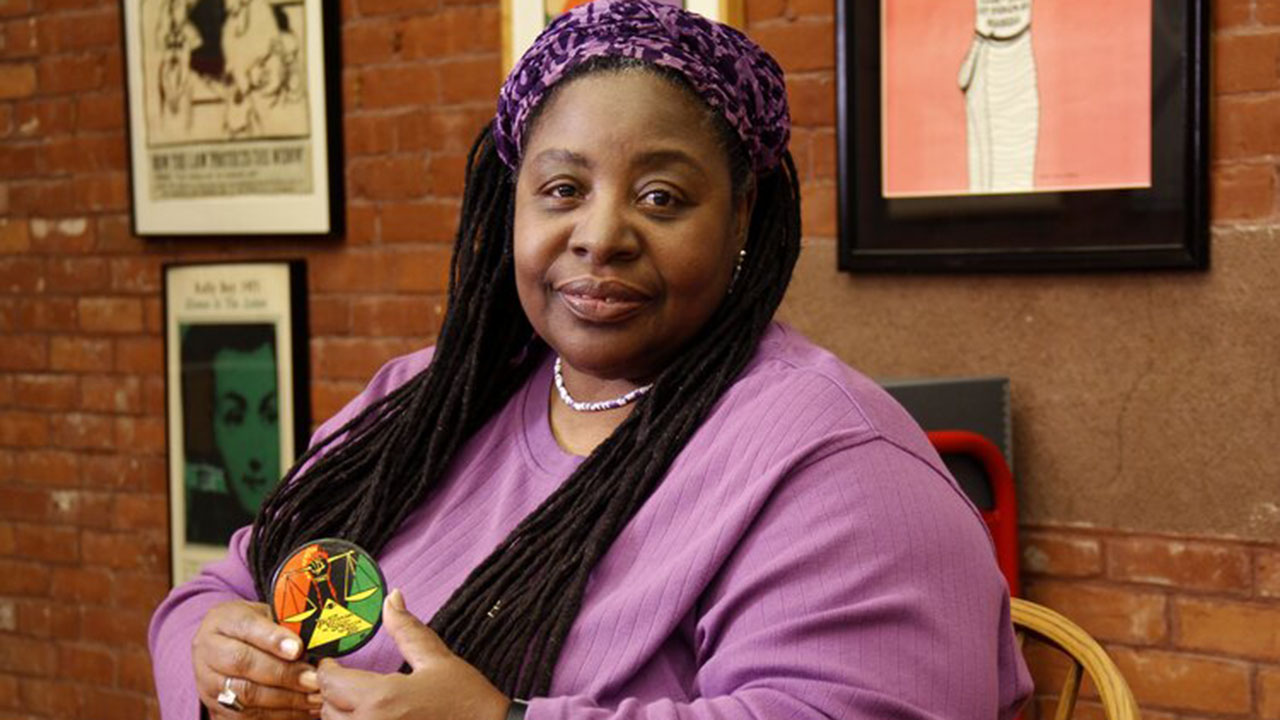
Contributed Photo
An activist who has helped shape the Women’s Movement for the last 40 years will be presenting during Winona State University’s celebration of Women’s History Month.
Loretta Ross, a renowned activist who helped establish the country’s first rape crisis center, coined the phrase “reproductive justice,” and dedicated the last 40 years to transforming human rights, will speak virtually to the WSU and Winona community during a March 30 presentation at 7 p.m. through Zoom which is open to the public.
Ross’s presentation will be joined by three other events throughout the month and into April in celebration of Women’s History Month, including a film showing of Warrior Women early in March, a presentation from Ojibwe award-winning author Linda Legarde Grover on March 16 and the traditional Take Back the Night awareness walk on April 15.
Ross, a speaker who WSU normally wouldn’t have access to pre-pandemic, will talk about how new voices in the Women’s Movement are using reproductive justice for BIPOC women as a framework to push beyond polarizing debates like abortion. The reproductive justice framework goes beyond the pro-choice/pro-life debate and has three primary principles, including the right not to have a child, the right to have a child, and the right to parent children in safe and healthy environments.
The events hosted by the Women and Gender Studies faculty have deepened our community’s connection to many powerful individuals often overlooked by society
“It’s very important that we’re having her speak,” Tamara Berg, the Director of Women’s, Gender, and Sexuality Studies at WSU said. “Her personal biography and experience completely inform the activist movements she puts her heart into.”
Ross’s energy and effort toward reproductive justice for Indigenous and women of color has had a direct impact on WSU’s campus. A group of students last year started a Reproductive Justice Club, inspired by Ross’s activism, and has been meeting weekly.
The Reproductive Justice Club will even get a chance to spend some coveted one on one time with Ross prior to her presentation.
“They’re excited to spend some time with her pre-lecture,” Berg said.
Berg said the hope is that these events, which have been intentionally created as platforms for marginalized feminists, not only educate the community, but also inspires action.
“It’s really about engaging community, students, and colleagues,” Berg said. “I hope they walk away with some encouragement toward activism for a movement they connected with.”
Mary Jo Klinker, a professor of Women’s, Gender, and Sexuality Studies at WSU, echoed the statement.
“This is great community education,” Klinker said. “Women’s, Gender, and Sexuality Studies happen in our community as collections of conversation that lead to social movement.”
During another virtual event in mid-March, Linda Legarde Grover will discuss her newest book “In The Night of Memory: A Novel,” which tells the story of two young Native girls whose mother disappears in Indian Country, continuing a long string of missing Native women in an area with a long devastating history of loss. In February, Linda LeGarde Grover and Angela Two Stars virtually joined the WSU community to discuss the epidemic of murdered and missing Indigenous women. Grover, a professor of American Indian Studies at the University of Minnesota Duluth and member of the Bois Forte Band of Ojibwe, will also talk about creative narratives of Ojibwe Women’s Lives during the 7 p.m. Zoom presentation on March 16.
Earlier this month, WSU also hosted a film screening of Warrior Women, which was one that Berg and Klinker were especially excited to help offer. On a recent Wednesday night, about 40 attendees gathered virtually to watch the hour long documentary about Native American activist Madonna Thunder Hawk who has fought for Native rights for more than 50 years. Thunder Hawk and her daughter are at the forefront of Native issues, including opposition to the Dakota Access Pipeline.
“It’s an important story centering women’s experiences in the American Indian Movement,” Klinker said. “We decided in 2018 after seeing a trailer at the National Women’s Studies Association that we would show the film as soon as it came out.”
To end the more than month long celebration, WSU in partnership with the Advocacy Center of Winona, will host “Take Back the Night” on April 15 in Central Park. The event works to raise awareness of sexual violence in the community and will begin at 4:45 p.m. with a short informational session on gender-based violence. The 25 year tradition will end with a march starting at 5:30 p.m.
To register for any of the three remaining events, visit Winona State University’s event calendar.
A history of robust celebrations for Women’s History Month
For the last 25 years, Berg has taken the organization of Women’s History Month events seriously.
Every year, she and others collaborate to host at times up to 14 events for Women’s History Month and the celebrations often last longer than just March.
“It’s a semester-long celebration,” Berg said.
No matter if it’s 14 events or four events, like this year, the intention is always the same.
“We always try to center marginalized voices,” Berg said.
And in that, they have succeeded.
Over the years, WSU has hosted speakers such as CeCe McDonald, a Black trans abolitionist, Colette Ghunim, a world-renowned filmmaker sparking social change through documentaries, and Rosa Clemente, hip hop activist who ran for Green Party Vice President in 2008 .
With events often being free and open to the public, the impact has been far reaching in the community.
“The events hosted by the Women and Gender Studies faculty have deepened our community’s connection to many powerful individuals often overlooked by society,” Crystal Hegge, the Director of the Advocacy Center of Winona said. “I am grateful to be part of their many collaborations.”
